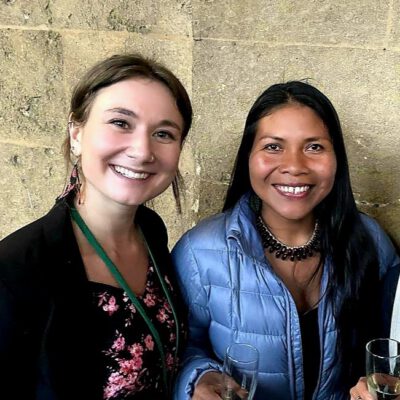nisansa activities
Engagement 2023
In June 2023, Julia Schwab (JLU) participated in the biennial Energy Anthropology Network Workshop in Lisbon on “Renewable Energy & Post-Carbon Futures”. The workshop was held in collaboration with the EASA Futures Anthropology Network (FAN) together with CRIA (Centro em Rede de Investigação em Antropologia) at the Insituto Universitário de Lisboa (ISCTE). Julia was able to present and discuss her preliminary results on “Temporalities in Friction: Temporal Violence and Planning in the Ecuadorian Amazon” within the thematic group on “Climate Colonialism”. On the EAN website there will be a blog post on “Realizing a Future ‘Otherwise’: A material claim about planning and future-making” available soon. It resulted as a reflection in the aftermath of the discussions Julia had during the workshop.
The workshop culminated with a fieldtrip to Cercal do Alentejo and Sines, where projects for large-scale photovoltaic parks and hydrogen coexist uneasily with the region’s carbon-intensive energy pasts. In Cercal do Alentejo, we met with Sérgio, a member of the civic movement “Juntos pelo Cercal” (Together for Cercal) that opposes a large-scale photovoltaic project on agricultural land. In Sines, an industrial town historically shaped by the presence of Portugal’s largest coal-fired power plant, we met with Egídio, a former worker at the plant and union leader, who talked to us about the controversial closure of the plant and plans to turn Sines into a green energy hotspot through hydrogen and solar parks.
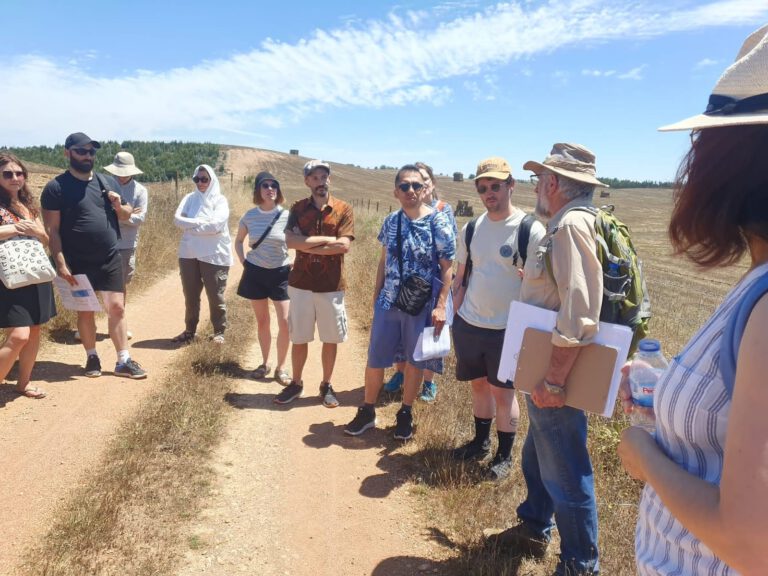
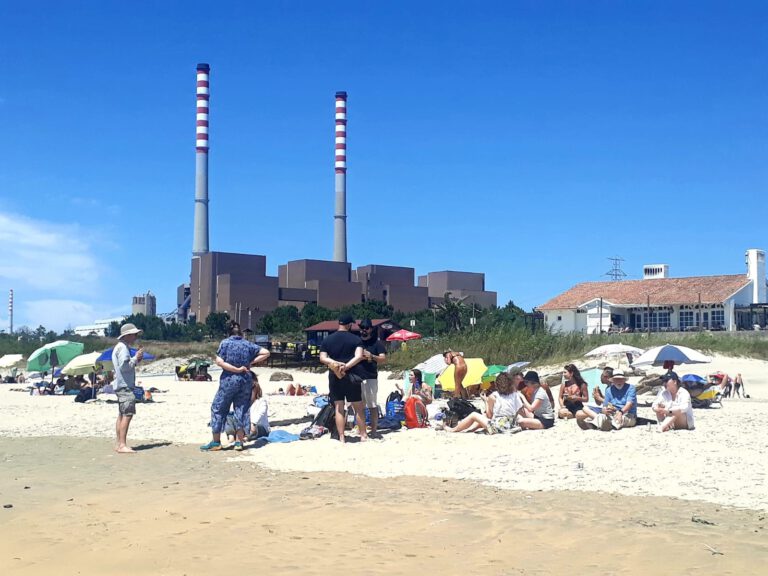
At the invitation of the association Etnias Ecuador representing demands of various social and indigenous movements, Julia Schwab (JLU) had the opportunity to hold a presentation on her research topic “Post-oil futures” at the Ecuadorian Parliament. This was a great opportunity to raise awareness among social leaders on the importance of thinking about and planning for a future with little to no oil extraction most likely affecting the whole population at one point. As the Latin American country is heavily dependent on its oil exports (around 30% of the state’s budget), it is a sensitive topic not often touched upon in politics. Unfortunately, as parliamentarians are quite busy and had to attend parallel sessions, just a few were able to attend Julia’s presentation. However, we hope a seed was planted.
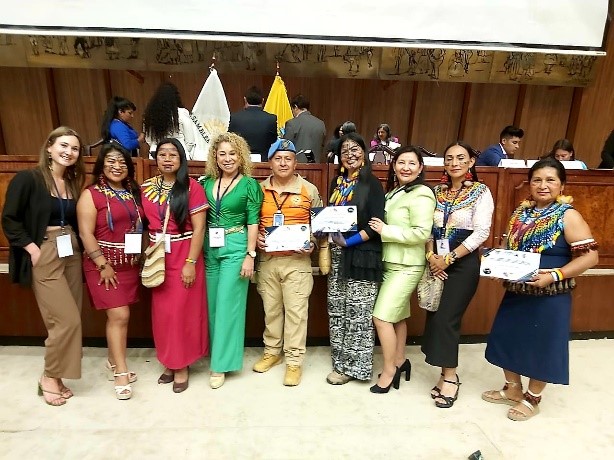
Engagement 2022
Julia Schwab (JLU) was able to represent the NISANSA project at the „Forum für Wissenschaftskommunikation“ in Hannover in October 2022. She reflected in her presentation titled „Soziale Klimawandelforschung und Instagram: Chancen und Grenzen internationaler Verbundprojekte“ on the challenges and opportunities of NISANSA regarding its social media presence. Science communication and transfer is often not an easy task as complex research results should not be misrepresented by simplified explanations fitting the social media format. However, we see the importance and reach of social media nowadays, and try to mediate what research on social impacts of climate change can look like to a broader public with our Instagram account: @nisansa_project.
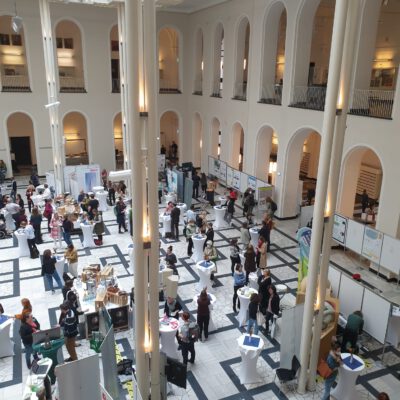
In September 2022, the International Conference on Fossil Fuels Supply and Climate Change took place in Oxford. Julia Schwab was able to attend and present her and Nadia Combariza’s research advances on “The Blinkers of Planning for Climate Change: Why the Just Energy Transition is failing in Extractivist States”. Julia’s participation as an anthropologist at the conference was particularly valuable as it complemented the spaces that are often dominated by economists or political scientist. In the aftermath Nadia and Julia were able to publish their findings in a viewpoint article with the title “The discursive blinkers of climate change: Energy transition as a wicked problem” in the Journal Extractive Industries and Society.
